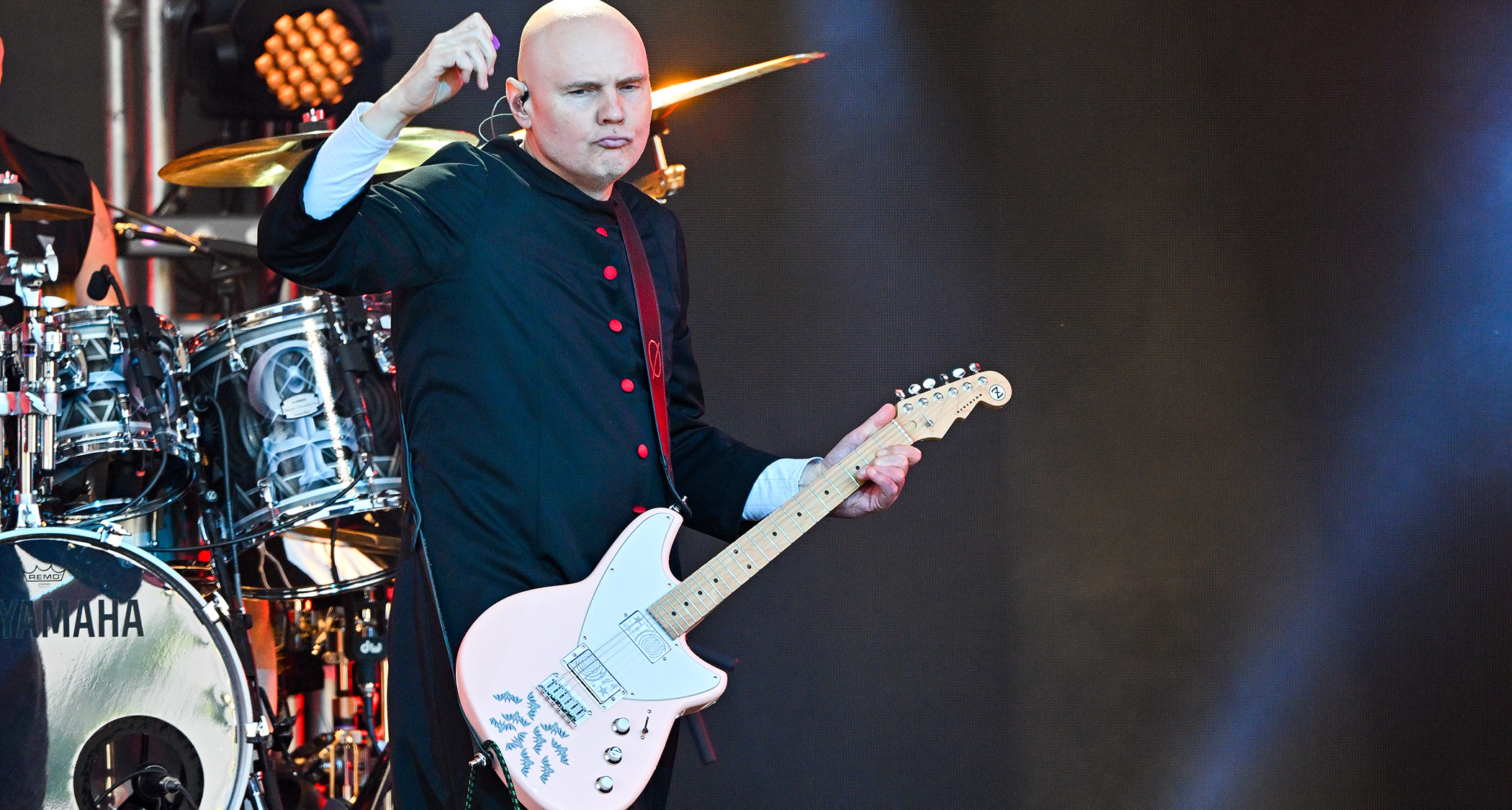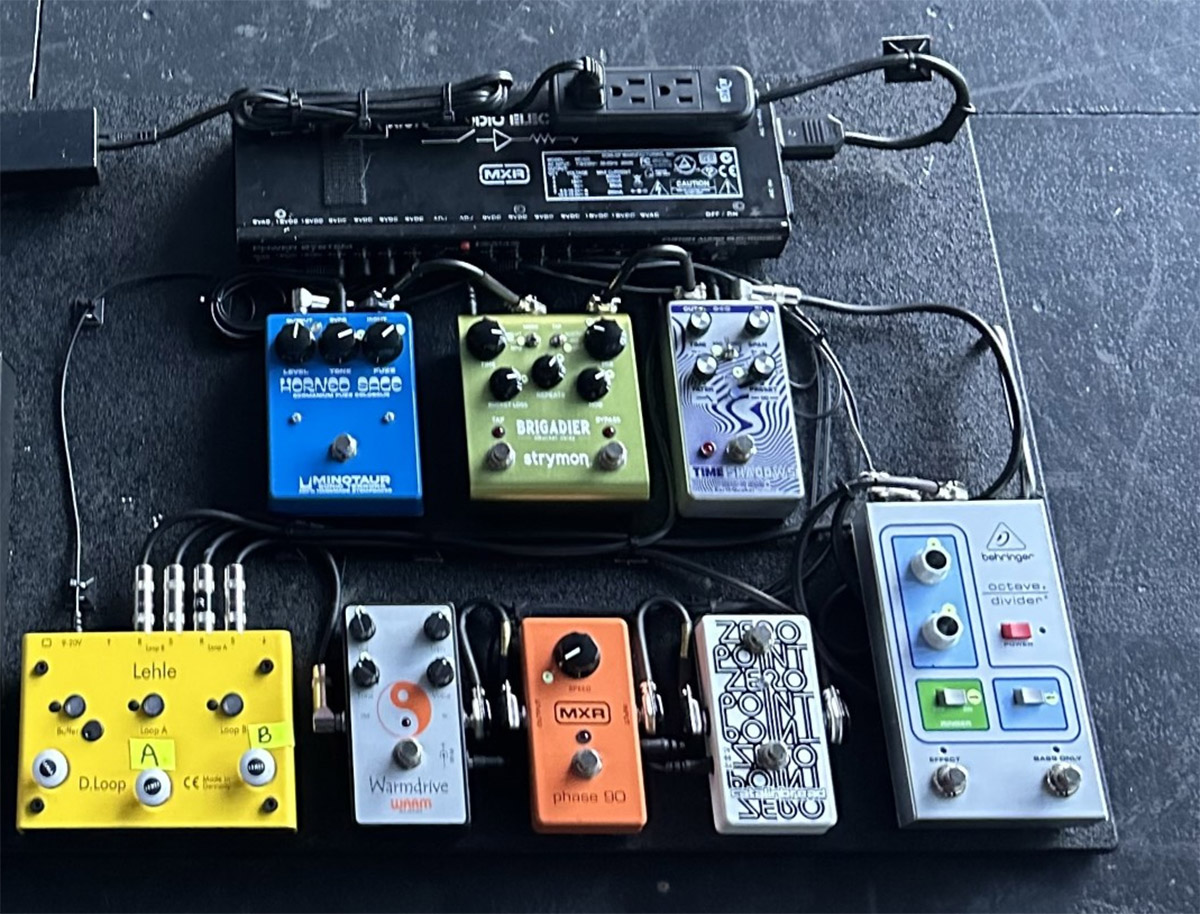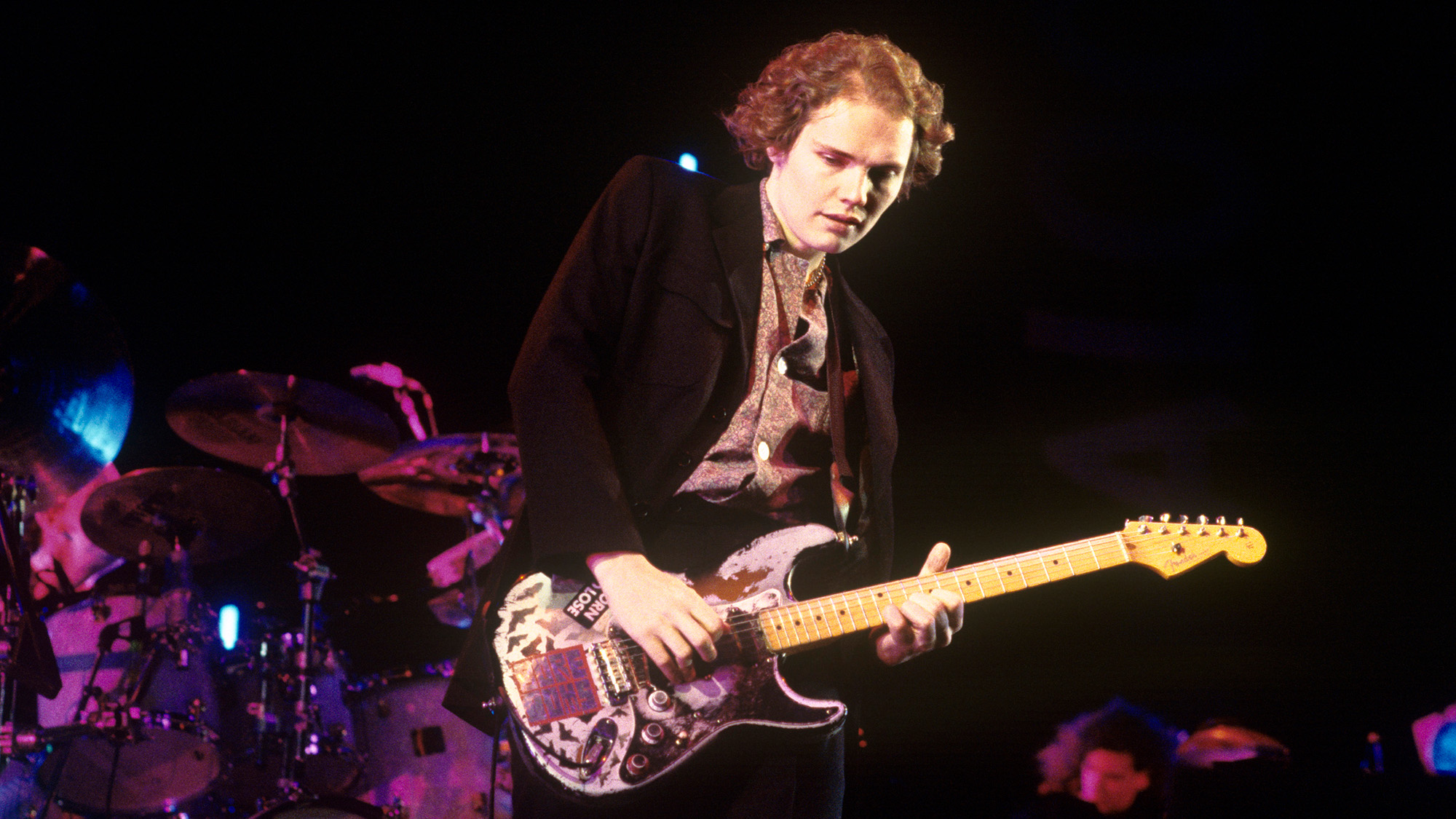“I haven't used the Big Muff since 1993. I don’t use that many pedals anymore, but I use them live”: Billy Corgan shares his pedalboard secrets, including the $1,000 pedal he stole from his dad
The Smashing Pumpkins bandleader reveals that though his relationship with guitar effects has changed over the years, there's still a place in his heart for them, especially the Warm Audio Warmdrive

“I honestly haven't used the [Electro-Harmonix] Big Muff [fuzz pedal] since 1993. For anybody interested, the Big Muff takes square waves and makes the guitar almost sound like a synth. If you want to get that sound without a fuzz, use equipment that gets that square-wave sound, but with more clarity.
“But on 95 percent of what you hear on the [Smashing Pumpkins'} new album [Aghori Mhori Mei], there are no pedals. I only get the pedals out if I need a special effect for a part or if I’m going to play a lead. Then I open the vault and pull stuff out. There are so many manufacturers now. If you want a Klon [overdrive], there’s 800 Klon pedals, you know?
“I don’t use that many pedals anymore, but I use them live to recapture some of the stuff on the records. For octave stuff, I’m using the Behringer Octave Divider, which is based on the old Mu-Tron Octave Divider. I have one of the originals; I stole it from my father, and they’re worth like $1,000 now. [Laughs]
“I’m using a tape flanger, the Catalinbread Zero Point. It does that temporary zero flange, which is unique because you have to step on it to engage the flange. When you step off it, the flange reverses. And I just put an MXR Phase 90 back in my rig; of course, people from Siamese Dream times would recognize the sort of semi-flangy sound we would use on the leads for the Cherub Rock solo.”

“Next is my favorite lead pedal, the Warmdrive by Warm Audio. If you’re [in] a high-gain situation, not every pedal works because it fights against the square waves. You need a certain type of pedal that works with the fuzz of the amp, and the signature Carstens Amplification [Grace] amps I use are super high-gain.
“Because I’m so crazy and hate running my sound through my pedals if I’m playing rhythm, I use this D.Loop pedal by Lehle. It’s the lowest signal degradation out of all the bypass pedals I’ve tried. It’s a bit of a hassle because I have two loops, so I need to decide what my pedal settings are before the song starts.”
“Then, when I go to play whatever part needs the pedal on, I just pop the loop in. My signal will run through the lead sound, and I pop it back out. But for most of the show, when I’m playing rhythm, it’s as close to going straight into the amp as I can get.
All the latest guitar news, interviews, lessons, reviews, deals and more, direct to your inbox!
“EarthQuaker Devices just put out a pedal called Time Shadows [experimental delay]. I don’t know what the hell it does, but it makes unique sounds that I’ve never heard out of a pedal.
“I also use a Strymon Brigadier [delay], and there’s a guy I’ve been working with out of Greece, the maker of Minotaur Sonic Terrors. He’s probably my favorite pedal maker, and he gave me a pedal – I don’t know if it’s commercially available – but it’s like an old-school fuzz. It’s called the Horned Sage.”
If I had to choose only one pedal for a full show...
“Something just to solo with. Right now, I’d pick that Warm Audio Warmdrive.
I just love it; it’s fantastic.”
- Aghori Mhori Mei is out now via Martha's Music.
Andrew Daly is an iced-coffee-addicted, oddball Telecaster-playing, alfredo pasta-loving journalist from Long Island, NY, who, in addition to being a contributing writer for Guitar World, scribes for Bass Player, Guitar Player, Guitarist, and MusicRadar. Andrew has interviewed favorites like Ace Frehley, Johnny Marr, Vito Bratta, Bruce Kulick, Joe Perry, Brad Whitford, Tom Morello, Rich Robinson, and Paul Stanley, while his all-time favorite (rhythm player), Keith Richards, continues to elude him.


